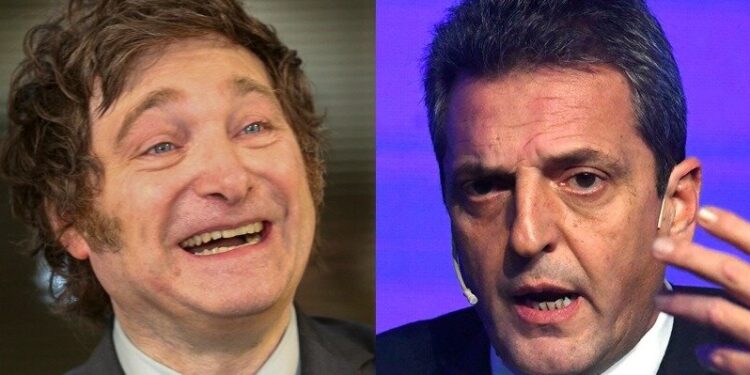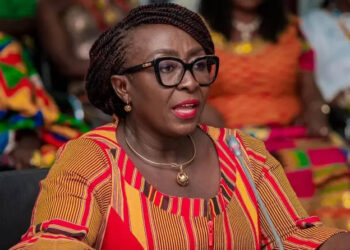By John Ikani
The contest to determine who will lead Argentina during its ongoing crisis is advancing to a runoff vote next month.
Sergio Massa, the left-wing candidate, and Javier Milei, a far-right libertarian, emerged as the top contenders following the initial round of voting on Sunday, as per data released by Argentina’s National Electoral Chamber.
In the first round of voting, Massa secured the highest number of votes, with 8,877,325 ballots in his favour, constituting 36.33% of the total count.
Milei received approximately 30.18% of the vote, totalling 7,373,876 ballots. Patricia Bullrich, the third-place candidate, conceded defeat on Sunday night, garnering 23.82% of the vote.
Both Massa and Milei are now vying for the trust of the nation in a time of widespread disillusionment with the Argentine elite and its handling of the country’s affairs.
The results underscore the strong performance of the government coalition supporting Massa. He currently serves as Argentina’s Economic Minister, a position he holds during the country’s most severe financial crisis in the past two decades.
Voter turnout exceeded 75%, with more than 25 million Argentinians casting their votes, and over 90% of the votes have been counted, according to the election authority.
Julio Vitobello, the general secretary of the presidency, remarked, “It has been a model day of Argentine democracy” during a press conference on Sunday night.
Inflation in Argentina has soared to 138%, adding significant pressure to the daily lives of ordinary citizens struggling to manage the rising cost of living.
After casting his vote in Buenos Aires on Sunday, the incumbent president, Alberto Fernández, took to the social media platform X to celebrate the nation’s democracy. He urged every Argentine to defend it and shape the country’s future through their votes.
Bullrich, a former security minister, mentioned to CNN en Español that she would entrust economists to manage the finance ministry, offering a firm and steady hand in contrast to Milei’s more volatile approach.
She has also been working to rejuvenate her image to appeal to younger voters, participating in viral challenges on YouTube and referencing her relationship with her cousin, singer Fabiana Cantilo in interviews.
Massa, currently serving in the government, holds a substantial ministerial portfolio that includes overseeing inflation control, soybeans (Argentina’s primary export), and the nation’s relationship with the International Monetary Fund.
He is positioning himself as a pragmatic left-leaning voice within the current government coalition, carefully distancing himself from Argentina’s influential vice-president, Cristina Fernandez de Kirchner, without alienating her power base.
In contrast to his main rivals, political newcomer Milei lacks government experience and pledges to disrupt Argentina’s existing economic structures. For his supporters, Milei’s promises of extensive reforms are captivating.
A former financial analyst and self-described “anarcho-capitalist” who brandishes a chainsaw at rallies, Milei has proposed radical changes, including dollarizing Argentina, reducing public subsidies, and eliminating various ministries, such as culture, education, environment, and women, gender, and diversity.
To secure a presidential victory in the first round, a candidate must receive more than 45% of all votes or a minimum of 40% with at least a 10-point lead over the second-place candidate.
Argentina’s next president will assume office in December, serving a 4-year term.



































